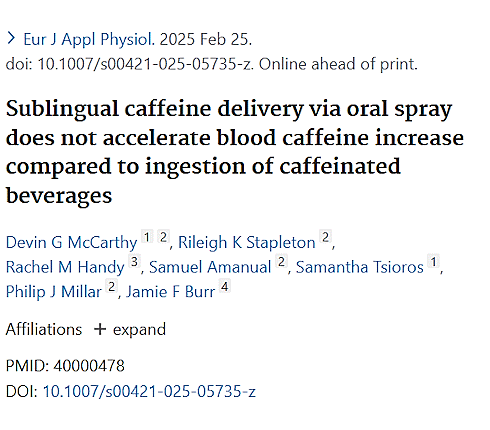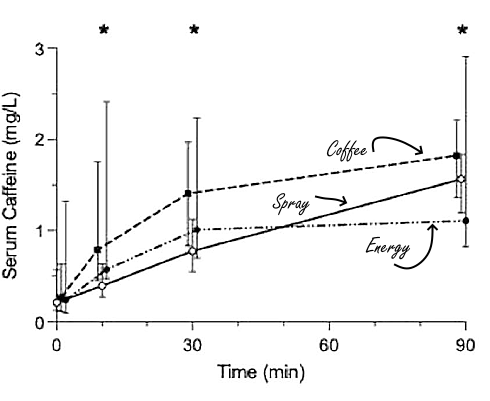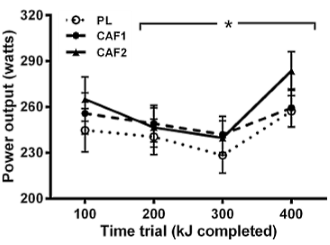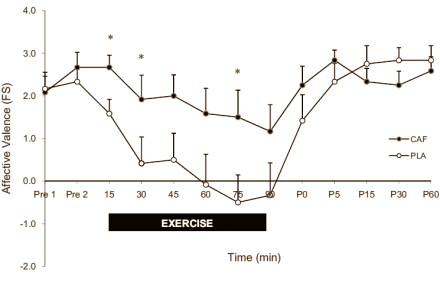|
Bioavailability of caffeine in spray is identical to that of caffeine in coffee
Caffeine in a spray enters the bloodstream just as quickly as caffeine in a cup of coffee or an energy drink. This is reported by Canadian researchers in the European Journal of Applied Physiology.

Study
Researchers from the University of Guelph in Canada gave 14 test subjects 60 milligrams of caffeine on three different occasions. On one occasion, the 60 milligrams were in a cup of coffee, on another occasion in an energy drink, and on yet another occasion in a spray that you had to spray under your tongue.
The researchers monitored the concentration of caffeine in the blood for an hour and a half.
Results
The researchers found the highest concentration of caffeine after ingesting coffee. But according to the statistical calculations of the Canadians, it did not matter in which form their test subjects consumed caffeine.

The researchers tested their subjects' cognitive abilities after administering caffeine - and found that reaction times increased. It didn't matter in what form the subjects had ingested the caffeine.
Conclusion
"This work suggests that sublingual administration of caffeine via novel mouth spray may not provide a benefit over more traditional caffeinated beverages in terms of caffeine bioavailability or cognitive function", the Canadians write.
We would like to add that some athletes get stomachaches from capsules and foods with caffeine. For this group too, sprays with caffeine are a solution.
Source:
Eur J Appl Physiol. 2025 Feb 25. doi: 10.1007/s00421-025-05735-z.
More:
Athletes who drink coffee daily respond well to caffeine supplements 22.08.2023
210 or 420 milligrams - which dose of caffeine works better? 20.08.2023
Whether or not you are used to caffeine, a cup of coffee improves sports performance 18.12.2020
Caffeine chewing gum works twice as fast as caffeine in pills or capsules 19.09.2018
Coffee is healthy, but not caffeine 15.07.2017
Archives:
Caffeine
Coffee
|





